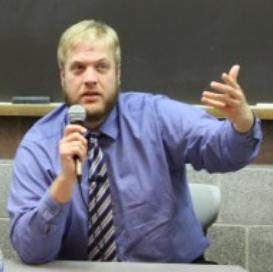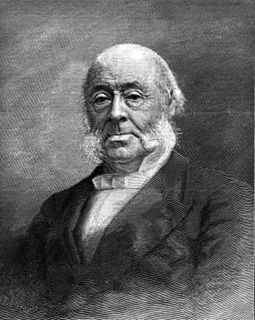A Quote by John Ruskin
What is in reality cowardice and faithlessness, we call charity, and consider it the part of benevolence sometimes to forgive men's evil practice for the sake of their accurate faith, and sometimes to forgive their confessed heresy for the sake of their admirable practice.
Related Quotes
Aside from higher considerations, charity often operates as a vastly wise and prudent principle-a great safeguard to its possessor. Men have committed murder for jealousy's sake, and anger's sake, and hatred's sake, and selfishness' sake, and spiritual pride's sake; but no man that ever I heard of, ever committed a diabolical murder for sweet charity's sake. Mere self-interest, then, if no better motive can be enlisted, should, especially with high-tempered men, prompt all beings to charity and philanthropy.
We black women must forgive black men for not protecting us against slavery, racism, white men, our confusion, their doubts. And black men must forgive black women for our own sometimes dubious choices, divided loyalties, and lack of belief in their possibilities. Only when our sons and our daughters know that forgiveness is real, existent, and that those who love them practice it, can they form bonds as men and women that really can save and change our community.
When someone hurts you or harms you, even if it is a deep wound, forgive them. Forgive them NOT for their sake, but as a sign of gratitude to Allah. Why you ask? For making you the victim and not the oppressor. There is no crime in being a victim, rather it brings you closer to Allah and rids you of sins. But as for the oppressor, they'll have to face their Lord one day. So in reality, they are their own greatest victims.
If you feel sincerely sorry on account of your sins, and believe that Christ is able and willing to forgive you, the work is done. You may trust with all the confidence of a child who confesses his fault, and casts himself into his father's arms. This is faith; a simple trust in the power and willingness of the Father to forgive, for the sake of what Christ the Son has done.
You must forgive everyone. Now many would say that "We cannot forgive, it's very difficult." But it's a myth whether you forgive or don't forgive. What do you do? You don't do anything. But when you don't forgive, then you are playing into wrong hands. That means you are torturing yourself, while those who have troubled you are quite happy.
The practice of yogasana for the sake of health, to keep fit, or to maintain flexibility is the external practice of yoga. While this is a legitimate place to begin, it is not the end. Even in simple asanas, one is experiencing the three levels of quest: the external quest, which brings firmness of the body; the internal quest, which brings steadiness of intelligence; and the innermost quest, which brings benevolence of spirit.
Forgiveness is a strange thing. It can sometimes be easier to forgive our enemies than our friends. It can be hardest of all to forgive people we love. Like all of life's important coping skills, the ability to forgive and the capacity to let go of resentments most likely take root very early in our lives.






































